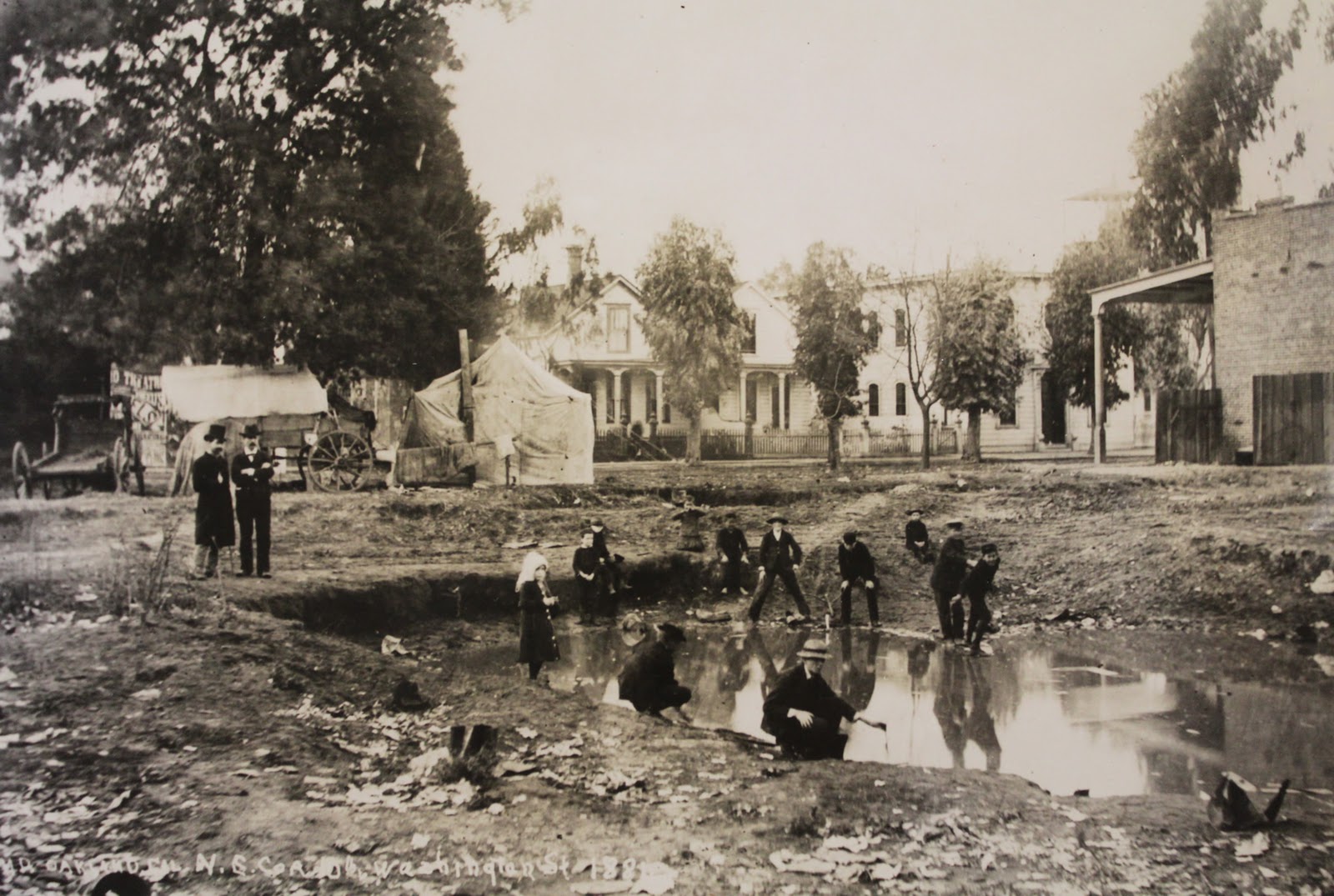
near where Stein grew up in Oakland
Gertrude Stein’s famous quote, “There is no there there” is often understood as a slight, a pronouncement that a place has no substance. Nothing to see here.
Stein was writing about returning to her childhood home in Oakland, California, in her 1937 book Everybody’s Autobiography. One reason her observation has taken on the meaning above is that in 1959, San Francisco Chronicle columnist Herb Caen wondered what she had meant and paraphrased her statement as, “The trouble with Oakland is that there’s no there THERE.” (Or possibly no THERE there? Caen asked.)
Reading Stein’s observation in its full context offers a more complicated picture of our relationship to place, but that is for another blog post. Caen’s musings, along with other writers’ paraphrasing of the line, have for better or worse created the popular understanding of “There’s no there there” to mean that some places are just devoid of interest or substance.
I want to challenge this meaning and suggest there’s always a there there. Finding what that there is one of travel’s deepest joys. How do you see beyond what you’ve been told to look at, beyond your initial impressions? How do you change your mindset so that you are not ‘discovering’ what you think there is to find about a place, but rather you are letting the place reveal itself to you?
How do you travel (and live) with shoshin, beginners’ mind?
A few experiences in particular have helped to travel in a way that is open to many possibilities. I’d like to share them with you, and invite you to bring in your own experiences with a comment.
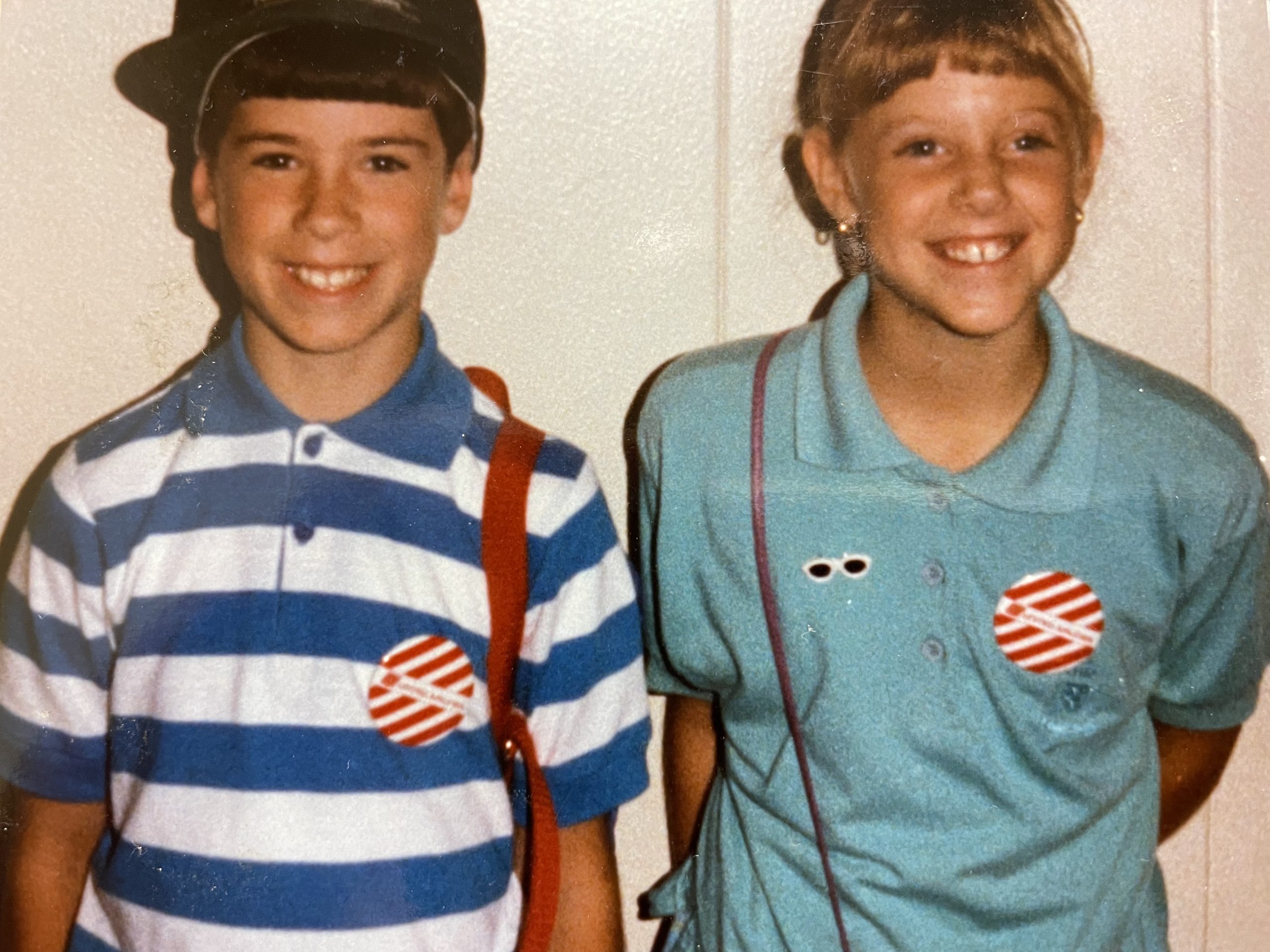
proudly wearing our United pins
1989, Huntington Beach, California
Our grandmother sent my cousin Ben and me from our homes in the Philadelphia suburbs to California to visit with another cousin, Ashley. We arrived at night, and as my aunt and uncle walked us through the dark garden toward their house, I could sense but not see the riot of plants and flowers. I could almost feel their energy. Right away I had the impression of being somewhere special, almost magical. In the days that followed, as we swam in the Pacific ocean and ate barefoot in beachside taco joints, this feeling did not dim. The food, the light, the landscape, Disneyland — everything about California was so
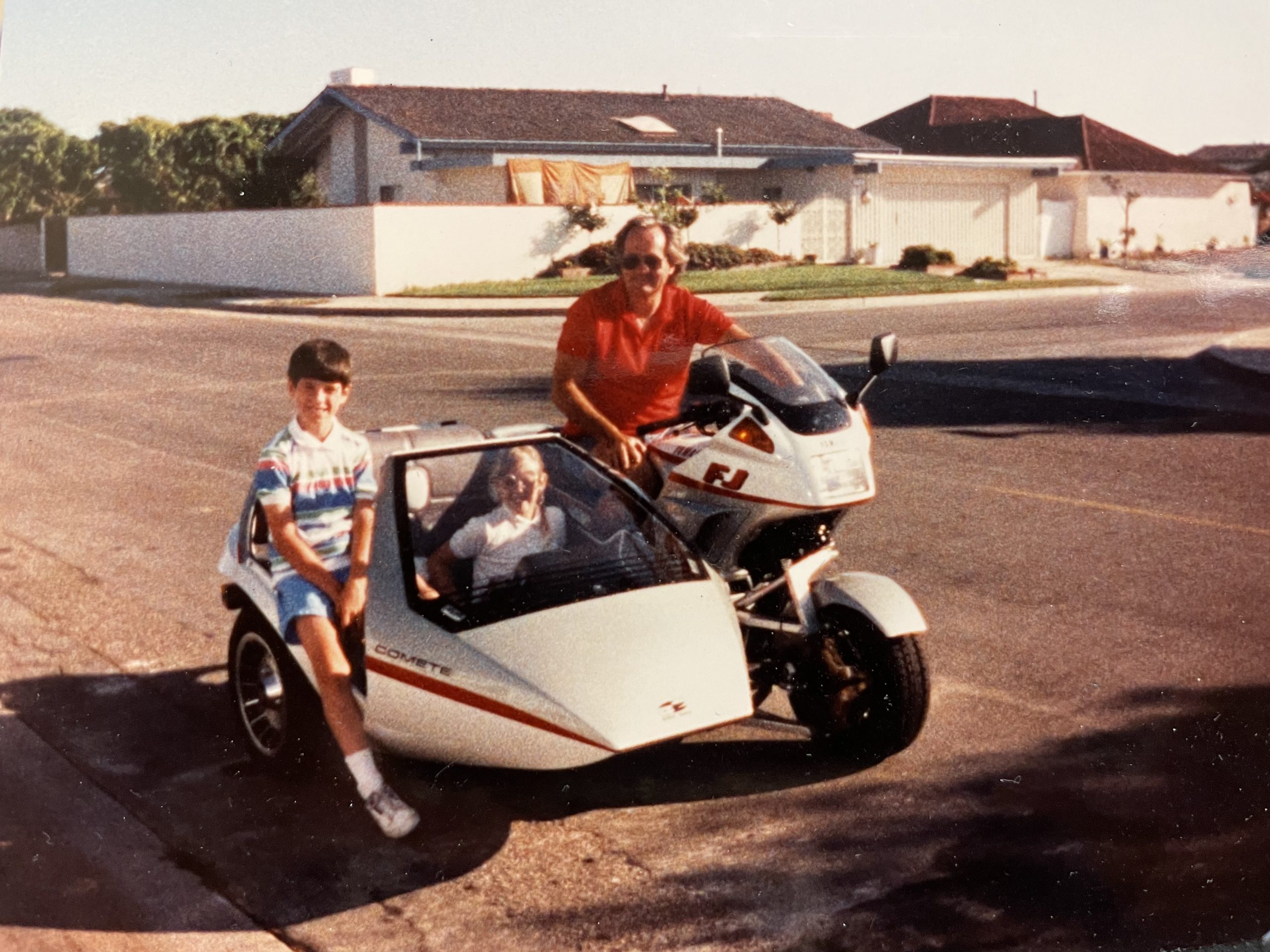
different from anything I had seen before. Was I an unsophisticated, easily impressed 10-year-old? Yes. Did this first journey far from home show me what it meant to be taken over by wonder? Yes. Should we seek out times where we can taken over by wonder well beyond the age of 10? Absolutely!
2000, Cambridge, England
I was backpacking solo through the UK and Ireland. After arriving in London I made my way to Ely (birthplace of Oliver Cromwell) and then to Cambridge. After a day of visiting the university’s treasures, I returned to my YHA hostel. My room was a flurry of activity; three of my roommates were young South African women who were getting ready to see one of their favourite bands. They had timed their own trip to be in Cambridge for the concert. “Come with us!” they insisted. Back home at college in New York, I worked at the Met and loved exploring the city’s endless cultural offerings, but I was also a studious person who worked multiple part-time jobs and would not be called especially spontaneous. My main concerns were getting good grades and not being a worry to my father, who had heavy burdens to carry after the death of my mother a couple of years earlier.
My roommates’ enthusiasm and openness were contagious, and I soon found myself putting on glittery eye shadow and dancing all night.
That night marked a small but important shift. I had not persuaded Dad to let me take this trip and saved my tips from interminable swing shifts in the smoking section at Denny’s only to do what Lonely Planet recommended. I was not going to make unsafe decisions, but I was going to talk to (almost) everyone, open up to the unexpected, say yes more than no, and not worry about always sticking to a plan.
Travelling this way has brought me so many unforgettable experiences. I’ve had my share of disappointing meals, conversations I wanted to get out of, and detours that did not pan out. But these have been far outweighed by moments of joyful surprise and connection.
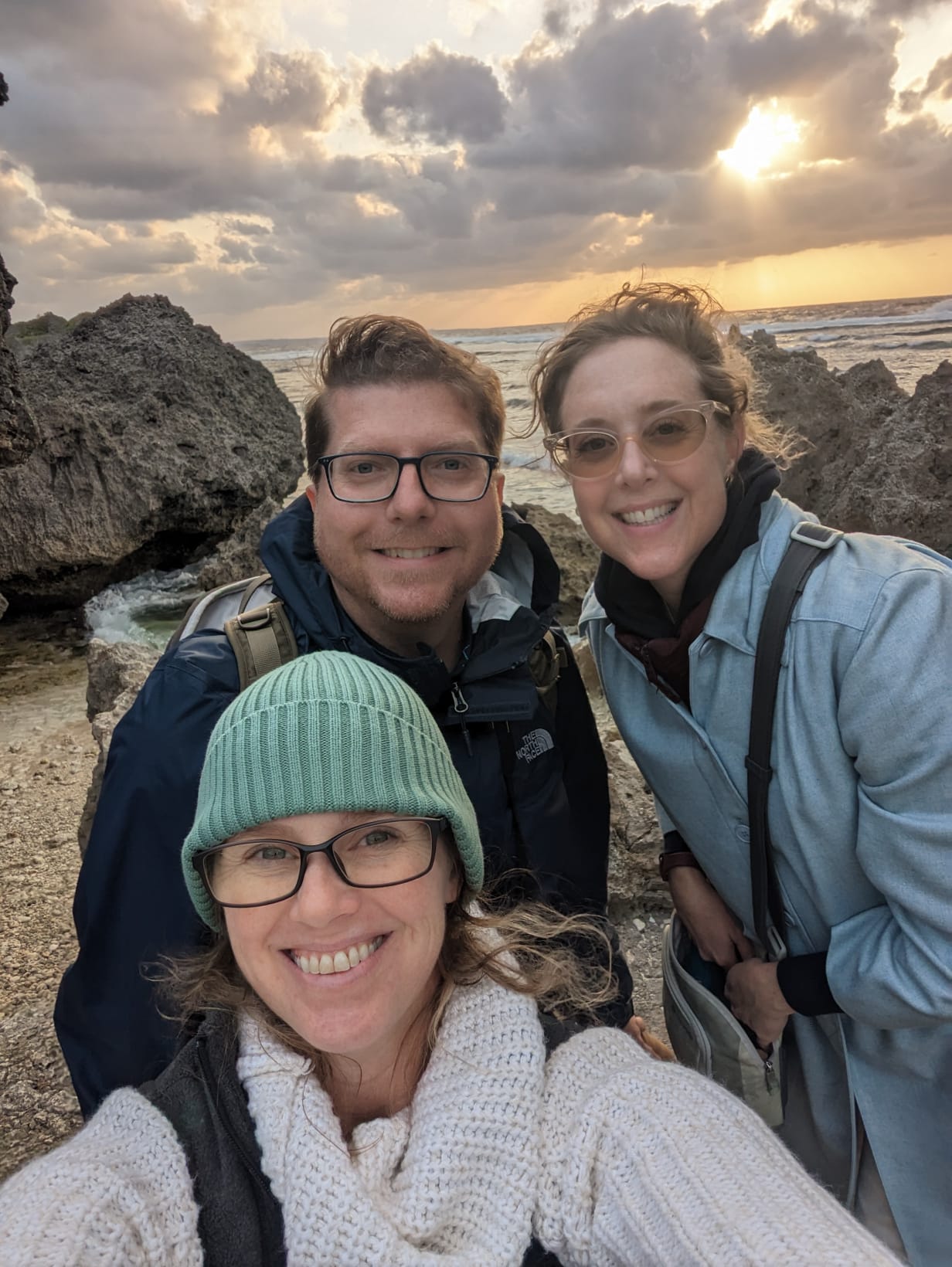
2023, Okinawa, Japan
A recent visit to Okinawa was the inspiration behind this post. My husband, who is also named Ben, and I were going to visit my sister. She had been living there for the past two years. After not seeing us for a long time because of the pandemic, she was thrilled we were coming and had done all the planning.
This was a secret relief. Work had piled up in the weeks before our trip. At the same time, I arrived in Japan with a vague sense of guilt and shame. Apart from packing the outdoor gear Carolyn said to bring and learning how to say please and thank you in Japanese, I had made no preparations. At Classical Pursuits I organize tours that come with, well, homework to do beforehand. (And all you travellers are so dedicated in doing the reading, thank you!) We spend hundreds of hours planning our tours. But here I was, getting off the plane, and I hadn’t read about Okinawa’s history, found the perfect sushi restaurant to take Ben to, or even asked Carolyn what we were doing.
These feelings subsided as I gradually realized what a gift it was to have no agenda, to be a blank slate, to maybe even have beginner’s mind. The one expectation I had come with — that I would enjoy Okinawa but it would be our side trip to Kyoto, with its temples and cultural monuments, that would really capture my imagination — was turned on its head. I did love Kyoto, the temples are exquisite, and I can’t wait to return in the spring with Classical Pursuits. But I found Okinawa equally captivating. As the days passed I did read about the history of the Ryukyu kingdom, local plants and flowers, and the terrible Battle of Okinawa. I learned more Japanese (largely thanks to Ben, an enthusiastic student). I found the sushi restaurant, and we are still raving about the toro and uni. I talked with people about the island’s cultural and political layers — its own history was interwoven with ties to China, Japan, and the United States, especially Hawaii, and this was fascinating.
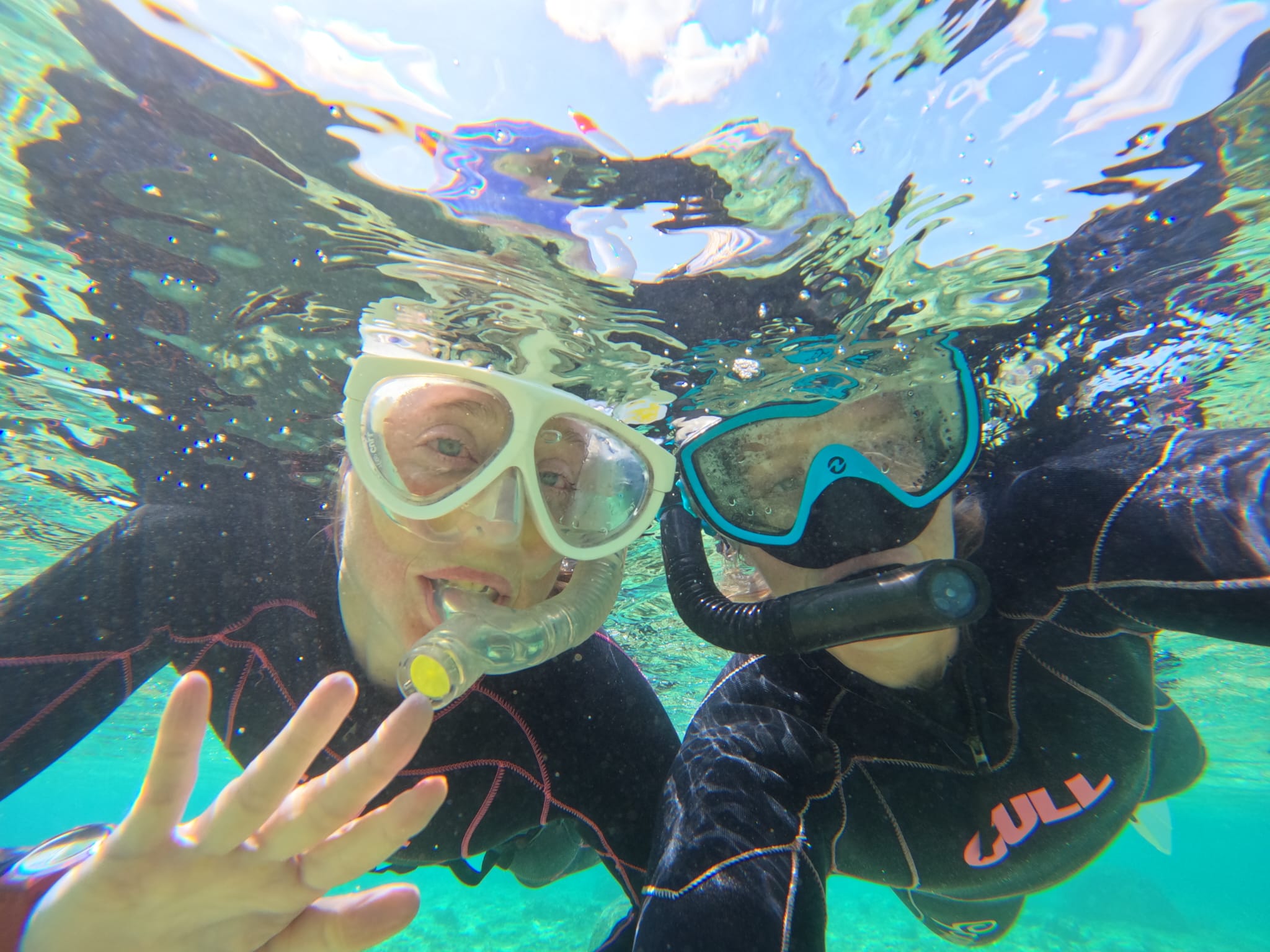
in the East China Sea
But mostly I tried simply to be present for what we were doing, to accept everything as offered, to enjoy the company of friends and strangers. I tried to just let Okinawa show itself to me. Okinawans are known for being easygoing, for enjoying life, and Okinawa was a place where it felt easy to be happy. I loved being there. I loved travelling this way.
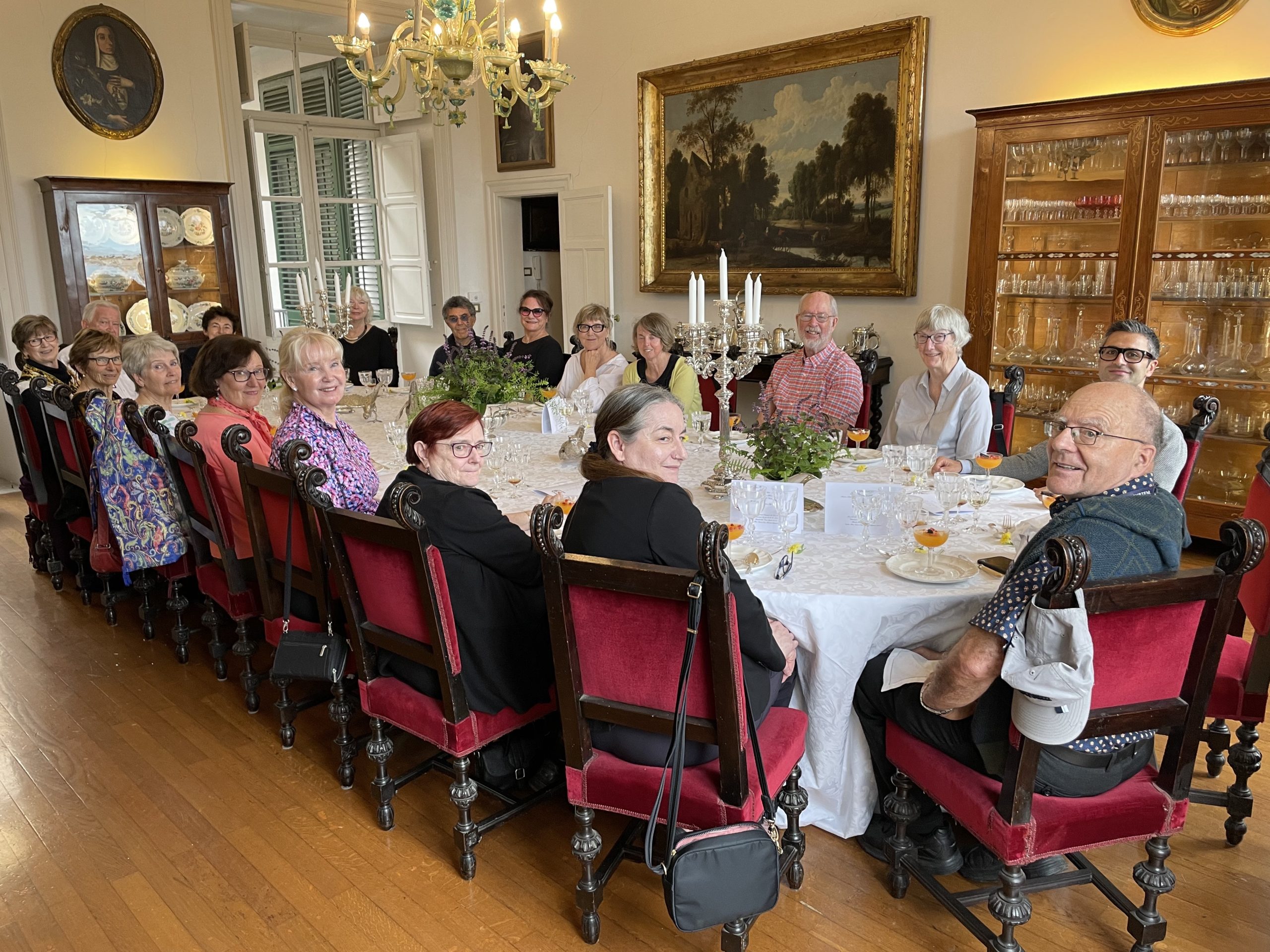
All this is not to say that all the reading, research and preparation we do for Classical Pursuits tours are not a valuable part of the travel experience. In fact, the most magical moments are the ones where all we have learned and felt from the readings flow over into an experience on the road. We are informed by the past, yet are incredibly present in a way that can be difficult in everyday life. (Reading World War One poetry in the fields of northern France and having lunch in the Palermo palazzo of the Lampedusa family are just two such moments that come to mind, but these too are for another blog post.)
Our focused itineraries and the work we, and you, put in beforehand allow us to make connections between history, land and people. My hope is that they open a door for you to step through into your own experience of wonder and possibility. I think this will be especially true for our upcoming Iceland tour, where literature and land are so intertwined.
As we continue our careful planning, I will try to keep the beginner’s mind and lightness of spirit I felt in Okinawa with me and use them to shape our approach to travel at Classical Pursuits.
See you on the road!
— Melanie
P.S. As many of you know, Classical Pursuits leader Wendy O’Brien writes extensively about wonder and has offered many seminars on the topic. Wendy’s work has helped me clarify my own thoughts about wonder and I thank her for that.
And thank you to Classical Pursuits leader Mark Cwik, who urged me to write this post and is always a generous and thoughtful listener.
P.P.S. We’d love to hear about your own travel experiences where you embraced spontaneity and went with the flow. Tell us about them in the comments.
Image credits: Children playing in a water hole near where Stein grew up in Oakland, 1884 (Oakland Public Library, Oakland History Room)


